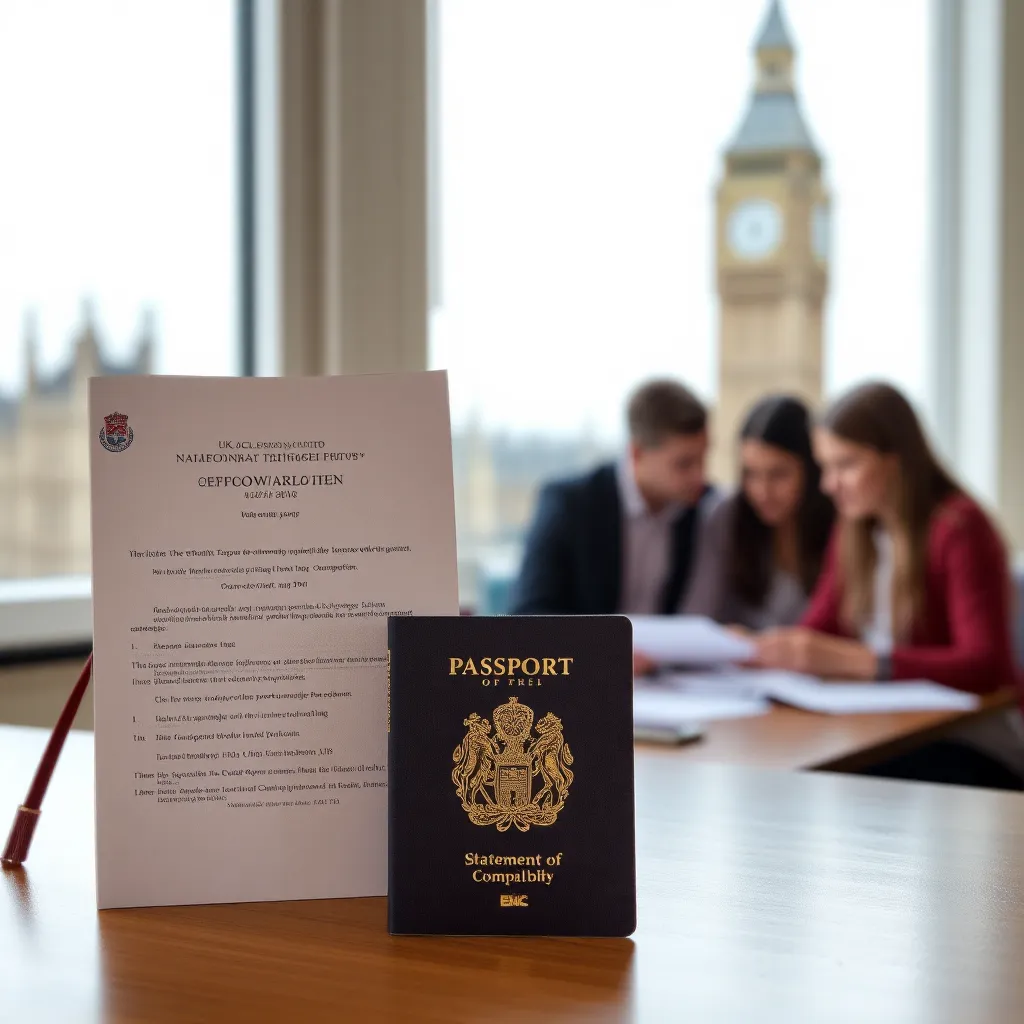Credential Evaluations: USA vs Canada vs UK vs Australia [2025]
Credential evaluations have become a pivotal requirement for anyone looking to study, work, or immigrate internationally. With growing mobility and globalization, verifying and comparing educational qualifications across borders lies at the heart of international opportunity. If you’re planning to move to the USA, Canada, UK, or Australia, understanding how credential evaluations work—and how they differ in each country—is essential to your success.
This in-depth guide compares credential evaluations in the USA, Canada, UK, and Australia. We’ll outline what credential evaluation means, why it’s necessary, who performs it in each country, and how the process, costs, and policies vary across these top global destinations.

Whether you’re a student aiming for a top university, a skilled professional, or an immigrant seeking permanent residency, this article will provide the knowledge you need to navigate the complexities of international credential evaluation.
What Is Credential Evaluation?
Credential evaluation is a formal assessment that verifies and compares academic transcripts, diplomas, degrees, and professional qualifications earned in one country to the standards of another country’s education system. It translates foreign credentials into their closest local equivalents—giving universities, employers, and licensing bodies a clear understanding of your educational background.
A reputable credential evaluator reviews your academic documents, checks institutional recognition, reviews curricula, and issues a detailed report. This report typically outlines:
- The equivalence of your degree (e.g., Indian Bachelor’s = US Bachelor’s)
- The educational level (e.g., secondary vs. post-secondary)
- Grades or GPA in the local system
- The recognized status of the issuing institution
Some evaluations (“course-by-course”) go further by detailing each course’s equivalence and US/Canadian/UK/Australian credits, which is often required for university admissions and professional licensing.
Why It Matters for International Students & Professionals
Credential evaluation is vital because education systems, curriculum duration, grading scales, and recognition standards differ country by country. Without this process:
- Universities may misunderstand your academic level or credit equivalency.
- Employers may be unable to judge if your degree meets job requirements.
- Licensing bodies might refuse registration in regulated professions.
- Immigration authorities can dismiss your application for not meeting comparability.
In summary, a credential evaluation bridges the gap between international and local qualifications, opening doors for study, career advancement, immigration, and professional practice.
Overview of Credential Evaluation by Country
Credential evaluation is mandatory in various scenarios—university admissions, skilled migration, employment, and professional licensing—in all major English-speaking countries. However, each country’s process is unique, involving different designated agencies, standards, document requirements, and validity periods.
Here’s an executive summary:
- USA: Credential evaluations are performed by private agencies, primarily NACES members such as WES USA and ECE. Evaluation types include course-by-course and document-by-document assessments. Required for university admission, employment, H-1B or EB visas, and professional licensing.
- Canada: ECAs (Educational Credential Assessments) are mandated for immigration and often university applications. Only government-designated organizations (e.g., WES Canada, ICES, IQAS) can issue accepted reports, especially for Express Entry. Reports are valid for 5 years for immigration purposes.
- UK: UK ENIC (formerly UK NARIC) issues the Statement of Comparability, comparing overseas qualifications to UK standards. Required for study, employment (sometimes), and visa sponsorship. Additional requirements exist for professions and skilled migration.
- Australia: Recognition is managed through organizations like AEI-NOOSR and skills assessment authorities (e.g., VETASSESS, Engineers Australia). Required for skilled migration (Migration Skills Assessment), higher education, and professional licensing. Complex process involving academic and skills recognition.
Key Differences Between the USA, Canada, UK, and Australia
While all four countries require foreign degree evaluation, the institutions involved, purpose, process, and acceptance criteria for credential evaluations differ significantly.
| Aspect | USA | Canada | UK | Australia |
|---|---|---|---|---|
| Who does the evaluation? | NACES members, e.g., AAE Evaluations, WES, ECE | Designated ECA Agencies, e.g., WES, IQAS | UK ENIC (Ecctis); Some professions specify bodies | AEI-NOOSR, Skills Assessment Authorities |
| Accepted for immigration? | Only in some visa categories | Mandatory (Express Entry/PR) | Sometimes (Global Talent, Skilled Worker) | Mandatory for most PR visas |
| Types of evaluation | Course-by-course, doc-by-doc | ECA (doc-by-doc), Academic Assessments | Statement of Comparability (Similar to doc-by-doc) | Migration Skill Assessment |
| Validity period | Usually indefinite (may vary) | 5 years (if ECA for immigration) | Indefinite (unless job-specific) | Varies by authority, ~2-3 years |
| Fee range (USD) | $100-$300+ (varies by agency/type) | $200-$300 (ECA); Academic varies | ~£49+ for Statement | AUD 500+ (for skills assessment) |
| Processing time | 5-20 days (rush available) | 2-8 weeks typical | 10-30 working days | 8-12 weeks (skills assessment) |
United States (USA)
Evaluation Agencies (e.g., WES, ECE, NACES Members)
In the USA, private independent agencies (often members of the National Association of Credential Evaluation Services, NACES) are responsible for international credential evaluation. There is no federal government agency for this.
Top recognized US credential evaluation agencies include:
- WES USA (World Education Services): Popular with international students, universities, and some state Boards.
- ECE (Educational Credential Evaluators): Preferred by many professional boards and employers.
- SpanTran, IEE, Josef Silny & Associates, GCE: Among other NACES-accredited evaluators.
Choosing a NACES member ensures quality and broad recognition. Learn about NACES members.
Evaluation Types (Course-by-Course, Document-by-Document)
- Course-by-Course Evaluation: Maps foreign courses to US credits and grades. Essential for university admission, higher education, and professional licensing.
- Document-by-Document Evaluation: Summarizes degree and major, equates overall level. Often sufficient for employment and immigration.
- Professional/Work Experience Evaluation: For US work visas (like H-1B), where education and work experience are combined to demonstrate degree equivalency.
Read more about evaluation types at AAE FAQ.
Purpose: Education, Employment, Immigration
- University Admissions: Almost all US universities require a recognized credential evaluation report from an accredited agency.
- Employment: Many employers and licensing boards mandate evaluation for foreign-trained professionals.
- Immigration: H-1B, EB-2, O-1, L-1 visa petitions often require a credential evaluation, sometimes with “expert opinion letters”.
Fees & Processing Time
- Fees: Course-by-course: $150-$300; Document-by-document: $100-$200. Rush processing may add $50-$100.
- Time: 5-20 business days for standard service; many agencies provide 3-5 day rush options.
- Validity: Usually, reports do not expire, but check if the target university/employer has time limits.
See WES USA’s current pricing.
Canada
Designated Organizations (e.g., WES Canada, ICES, IQAS)
For immigration (especially Express Entry), Canada mandates that your credential evaluation comes from a government-designated ECA organization:
- WES Canada (World Education Services)
- ICES (International Credential Evaluation Service, BC)
- IQAS (International Qualifications Assessment Service, Alberta)
- ICAS (International Credential Assessment Service of Canada)
- CES (Comparative Education Service, University of Toronto)
Certain regulated professions require their own designated professional bodies, such as:
- Medical Council of Canada (physicians)
- Pharmacy Examining Board of Canada (pharmacists)
- Canadian Architectural Certification Board (architects)
See Canada’s official list of designated organizations.
Required Documents & Processes
- Educational transcripts, degree certificates, and mark sheets (sent directly by institutions in most cases).
- Translation of documents if they are not in English or French.
- Online application on the selected ECA agency’s portal.
- Pay the processing fee and receive application number/reference.
Use for Immigration (e.g., Express Entry)
- Express Entry applicants must submit a valid ECA with their profile.
- Each spouse’s credential can be evaluated for extra points.
- ECA reports are valid for five years (for IRCC immigration purposes).
- For “two or more degrees” points, each qualifying credential must have an ECA.
Note: ECA does not guarantee a job or professional license. Regulated professions have separate processes.
Common Challenges
- Delays in international document transmission
- Unrecognized universities or unaccredited programs
- Credential mismatch or partial documentation (e.g., no transcripts)
- Misunderstanding of which degrees must be evaluated
- Expiry of ECA prior to submission
Insights from CIC News on credential evaluation in Canada.
United Kingdom (UK)
UK ENIC (formerly UK NARIC)
Foreign degree evaluation in the UK is handled by UK ENIC, formerly known as UK NARIC. Operated by Ecctis, it is the sole national agency authorized to issue qualification comparison statements.
- For general education and employment: Apply for a Statement of Comparability.
- For visa and skilled worker routes: The Statement may be required to satisfy Home Office requirements (e.g., for Skilled Worker, Health and Care visas, some Student visas).

Statement of Comparability
- A certificate stating how a foreign qualification compares to UK levels (e.g., level 6 = Bachelor’s).
- Includes: Your name, institution, year of award, recognized UK comparison, but not grades or subject equivalence.
- For academic, vocational, and some professional qualifications.
- Application is online, requires digital uploads or scans.
Example Statement of Comparability
Academic vs. Professional Recognition
- Academic: For university admissions or employment, a Statement suffices.
- Professional: Some regulated professions (e.g., teachers, doctors) require separate recognition from sector-specific bodies. UK ENIC can advise but the final word rests with the regulator.
- Note: The Statement does not verify English language competency; separate proof is required.
Special Notes for Skilled Workers and Tier 4 Students
- Skilled Worker Visas: UK Home Office may require proof that your degree meets UK standards (via Statement of Comparability).
- Tier 4 (Student) Visas: Institution guidelines determine need; not always required if recognized by university.
More from UK ENIC: Statement of Comparability FAQ.
Australia
Qualification Recognition Bodies (e.g., AEI-NOOSR, VETASSESS)
Australia uses multiple agencies for credential evaluation depending on the purpose:
- AEI-NOOSR (Australian Education International – National Office of Overseas Skills Recognition): General comparison of overseas skills for study or work.
- VETASSESS: Comprehensive skills assessment (including degree equivalence and work experience) for regulated trades and general professionals.
- Assessing Authorities by profession (e.g., Engineers Australia, CPA Australia, AITSL for teachers).
See the full list of assessing bodies.

Skills Assessment Authorities
Before applying for migration, certain visas mandate a skills assessment by official authorities. The most common are:
- General occupations: VETASSESS
- Engineers: Engineers Australia
- Accountants: CPA Australia, CA ANZ
- IT Professionals: Australian Computer Society (ACS)
- Trades: TRA, VETASSESS
These authorities verify both the degree and practical skills/work experience.
More: Skill assessment for Australian visas.
Migration Skill Assessment (MSA)
The Migration Skill Assessment is key for professions, especially for PR, work, and skilled migration visas (e.g., Subclass 189/190). It:
- Confirms the overseas qualification meets Australian standards
- May require proficiency tests or practical assessments in trades
- Applies strict rules on documentation and evidence of employment history
Use for PR, Study, and Work Visas
- Permanent Residency (PR): Skills assessment is mandatory under General Skilled Migration.
- Study Visas: Universities may use NOOSR or AEI comparisons to determine admission eligibility.
- Work Visas: Occupation-specific assessment is compulsory.
Note: Costs and processing times are among the highest of all four countries due to thoroughness and professional checks.
Comparison Table
Below is a comprehensive table to support your credential evaluation comparison journey:
| Country | Main Evaluators | Types | Used For | Processing (avg) | Cost (USD/EUR/AUD/GBP) | Validity |
|---|---|---|---|---|---|---|
| USA | WES, ECE, NACES mbrs | Course-by-Course, Doc-by-Doc | Study, Employment, Immigration | 5-20 business days | $120-$250 (rush +$80) | Usually unlimited |
| Canada | WES Canada, ICES, IQAS | ECA, Course-by-Course | Study, Immigration (Express Entry) | 2-8 weeks | $200-$300 | ECA: 5 years |
| UK | UK ENIC (Ecctis) | Statement of Comparability | Study, Jobs, Skilled Workers | 10-30 days | £49-£125 | No expiry declared |
| Australia | VETASSESS, AEI-NOOSR | Skills/Qualification Assessment | PR, Work, Study, Licensing | 8-12 weeks | AUD 500-1000+ | 2-3 years |
Note: Above values are averaged and may vary based on agency and specific case.
Common Mistakes to Avoid
- Submitting Incomplete Documents: Missing transcripts, untranslated certificates, or incomplete application forms are top causes of rejection or delays.
- Choosing the Wrong Evaluation Type: Course-by-course evaluation for employment, or document-only report for university, can lead to application denials.
- Selecting Non-designated Agencies: For countries with official lists (Canada, Australia), only reports from designated bodies are accepted for immigration.
- Forgetting Country-Specific Requirements: Not all countries treat “diploma” or “postgraduate diploma” the same; pay attention to required equivalencies.
- Not Checking Validity Period: Especially for Canadian and Australian immigration; expired ECAs are not accepted.
Detailed practical guide: How to get a credential evaluation.
Tips for a Smooth Credential Evaluation
How to Prepare Your Documents
- Obtain official, sealed transcripts directly from your university (most agencies require direct submission).
- Get certified translations for documents not in English (or French for Canada).
- Scan or copy all originals for your records before mailing.
- Double-check agency-specific documentation requirements online before applying.
Verifying Accrediting Bodies
- Use NACES (USA), designated ECA lists (Canada), UK ENIC (UK), and Australian government migration authority sites (Australia).
- Only use agencies recognized by the immigration/employer/university.
Getting Help from a Consultant (When to Consider)
- For complex cases (e.g., composite degrees or study over different countries)
- If your university no longer exists or is not in agency databases
- Skilled migration or licensing in Australia—agencies vary by occupation.
If using a consultant, ensure they’re reputable and do not guarantee results beyond official agency processes.
Conclusion
Choosing the Right Path Based on Your Goals
Pursuing global opportunities for education or work hinges on ensuring your hard-earned qualifications are fully valued. The credential evaluation comparison between the USA, Canada, UK, and Australia reveals that the path you choose must align with your purpose—be it study, skilled migration, or professional licensing.
While the USA offers flexibility through NACES members and is ideal for those seeking versatile recognition, Canada follows a structured, government-designated path for immigration and academic admissions. The UK centralizes recognition through UK ENIC, focusing on clear academic mapping, while Australia places a premium on skills assessment and professional recognition, especially for permanent residency.
Your steps:
- Identify your purpose (study, work, PR, licensing).
- Check your destination’s requirements and accepted agencies.
- Gather and verify ALL required documents.
- Select the right evaluation type for your application.
- Start early—avoid delays, especially if you need to post documents internationally.
With the world more interconnected than ever, your education is a global asset—ensure it travels with you as you realize your international ambitions!
FAQs on Credential Evaluations
What is the difference between course-by-course and document-by-document credential evaluation?
- Course-by-course evaluation breaks down your degree into individual courses, mapping grades and credits to the local system—a must for academic admissions and licensing.
- Document-by-document only compares the overall degree/title—often enough for work or immigration purposes.
Which agencies are accepted in the USA for credential evaluations?
- NACES members such as WES USA, ECE, SpanTran, Josef Silny & Associates are widely accepted. Always confirm with your target institution.
Do I need to evaluate every degree for Canadian Express Entry?
- Usually, only your highest degree is required (e.g., your Master’s). But if you claim “two or more degrees,” each must be assessed separately.
Is the Statement of Comparability from UK ENIC accepted for all professional jobs?
- No. While it is accepted by most employers and universities, regulated professions (law, teaching, medicine) may require additional or separate recognition by sector-specific authorities.
How long does a credential evaluation take?
- Varies by country and agency: USA (5-20 business days), Canada (2-8 weeks), UK (10-30 working days), Australia (8-12 weeks for skills assessment).
Do all credential evaluation reports expire?
- In Canada, ECAs for immigration are valid for five years; in the USA, UK, and Australia, validity periods may differ by institution or authority—check with your target organization.
What is the best credential evaluation agency?
- It depends on your destination and purpose. WES and ECE are highly reputable globally, but always choose an agency from your destination’s official list (NACES in USA, government-designated ECAs in Canada, UK ENIC for UK, and approved authorities in Australia).
How do I ensure my university is recognized?
- Use agency websites to check lists of recognized institutions or contact the agency beforehand for verification.
For more information and help, visit:
- World Education Services USA and Canada
- Educational Credential Evaluators (ECE)
- UK ENIC Statement of Comparability
- Australian Skills Assessment Authorities
Ready to take your next career step or study abroad? Start your credential evaluation process today for smooth international recognition and unlock global opportunities!



